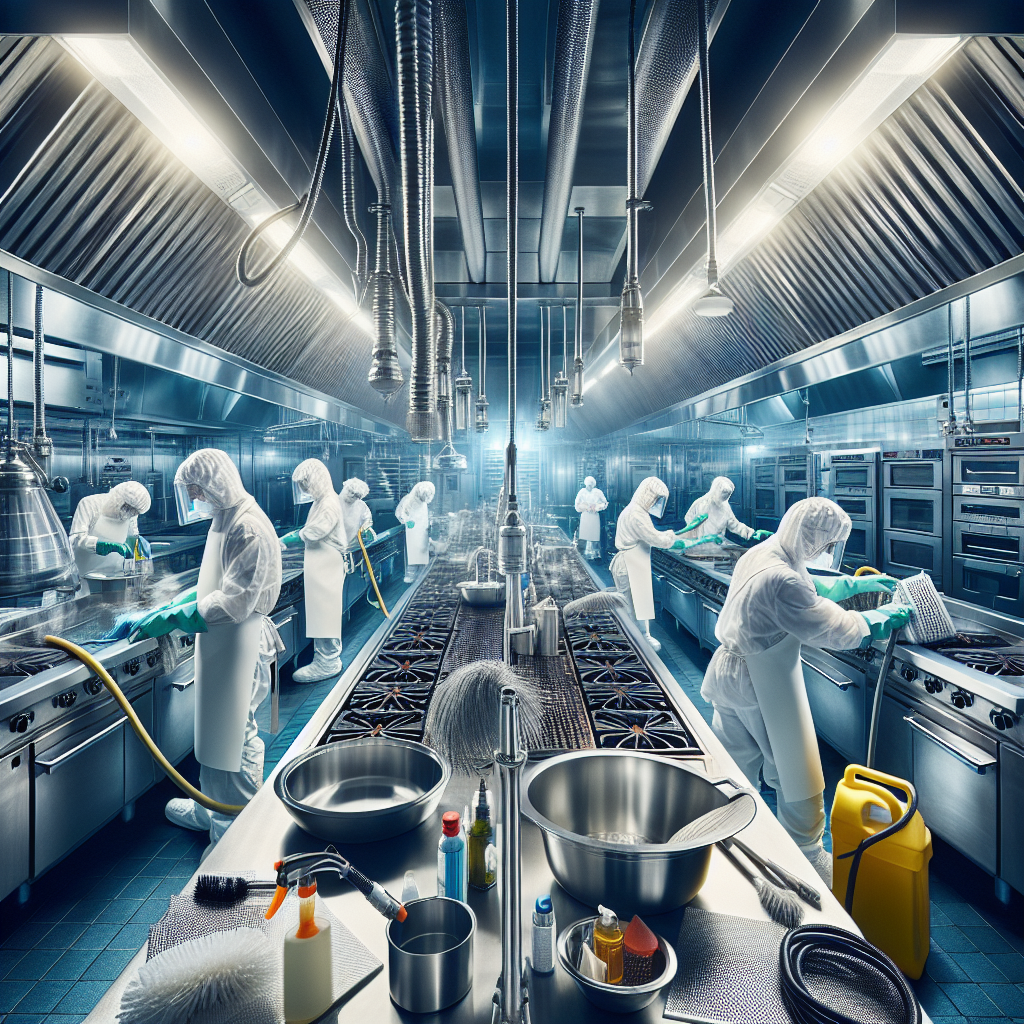The Hidden Challenges of Hood Cleaning in Commercial Kitchens
Restaurant hood cleaning is more than just a routine task in the foodservice industry; it’s a fundamental aspect of maintaining a safe and efficient kitchen environment. When it comes to commercial kitchen hood cleaning, the stakes are even higher. Any oversight can lead to significant health inspections, fire hazards, and even closures. Let’s dive into the specific challenges and requirements of hood cleaning in large commercial kitchens.
Why Hood Cleaning is Essential
Hood cleaning is not just a procedural necessity; it’s a critical component for the overall health of your kitchen environment. Regular exhaust hood cleaning ensures that grease, grime, and debris do not build up to hazardous levels. In a bustling city like Nashville, restaurants are under constant scrutiny to maintain high standards of cleanliness and safety.
The Dangers of Neglecting Hood Cleaning
Skipping hood cleaning is a perilous gamble. A commercial kitchen hood is designed to capture and remove airborne grease, smoke, and other pollutants. When left uncleaned, grease can accumulate and become a significant fire hazard. Furthermore, exhaust hood cleaning helps maintain proper airflow, which is crucial for keeping a commercial kitchen functioning efficiently.
Special Requirements for Restaurant Hood Cleaning
Unlike residential kitchens, commercial kitchens require more rigorous cleaning protocols due to their high volume of cooking. The cleaning process involves several steps:
- Inspection: A thorough inspection of the hoods, ducts, and exhaust fans to identify the extent of grease buildup.
- Degreasing: Using industrial-strength cleaners to break down and remove grease and grime.
- Scraping: Manually scraping off stubborn grease deposits that degreasers alone cannot remove.
- Rinse and Polish: Rinsing the cleaned surfaces to remove any remaining cleaner and polishing to restore shine.
- Final Check: A post-cleaning inspection to ensure all components are clean and functioning correctly.
Equipment and Tools Needed
The right tools make all the difference in a thorough restaurant hood cleaning process. Specialized equipment ensures that every nook and cranny of your commercial kitchen hood is cleaned effectively:
- High-pressure washers: For deep cleaning and degreasing.
- Scrapers: To manually remove tough grease deposits.
- Industrial degreasers: Strong solutions that break down grease.
- Protective gear: Safety is paramount; gloves, goggles, and other protective wear are necessary.
- Inspection mirrors: To check hard-to-see areas, ensuring a comprehensive clean.
Common Pitfalls in Commercial Kitchen Hood Cleaning
Even with the best efforts, there are common pitfalls that many face in the process of hood cleaning:
- Overlooking exhaust fan cleaning: The exhaust fan is an integral part of the hood system and must be cleaned as thoroughly as the hood itself.
- Incomplete cleaning: Not reaching all sections of the ductwork, which can leave hidden grease deposits.
- Improper chemical use: Using the wrong type or concentration of cleaning chemicals can damage the hood and duct materials.
- Neglecting regular maintenance: Waiting too long between cleanings increases the difficulty and risk of the process.
The Importance of Professional Hood Cleaning Services
Given the complexities and risks involved in hood cleaning, many commercial kitchens turn to professional services for their expertise. Professionals like Nashville Hood Cleaning Pros not only bring specialized tools and knowledge but also ensure compliance with local safety and health regulations. In a bustling city like Nashville, where the restaurant scene is ever-evolving, having a reliable hood cleaning service is an invaluable asset.
How Often Should You Schedule Hood Cleaning?
The frequency of hood cleaning depends on several factors, including the type of food prepared and the volume of cooking. A general guideline for commercial kitchens is:
- Heavy use (24/7 operations): Clean every three months.
- Moderate use (daily operations): Clean every six months.
- Light use (occasional cooking): Yearly cleanings may suffice.
Being proactive about your exhaust hood cleaning schedule can prevent major issues and help maintain kitchen efficiency.
Top Tips for Effective Hood Cleaning
Here are some expert tips to ensure effective hood cleaning in your commercial kitchen:
- Train your staff: Ensure that everyone understands the importance of hood cleaning and basic maintenance practices.
- Create a cleaning schedule: Regularly scheduled cleanings prevent the buildup of hazardous grease.
- Inspect regularly: Frequent inspections can catch issues before they become significant problems.
- Hire professionals: Utilize expert services like Nashville Hood Cleaning Pros to ensure thorough and compliant cleaning.
Conclusion
Hood cleaning in commercial kitchens is a task that demands attention to detail, specialized equipment, and expert knowledge. Ignoring the importance of restaurant hood cleaning can lead to severe consequences, including fire hazards and health code violations. Employing the services of professionals like Nashville Hood Cleaning Pros ensures that your kitchen remains safe, efficient, and compliant with all regulations. Don’t leave your hood cleaning to chance; ensure it’s done right by seasoned experts.


